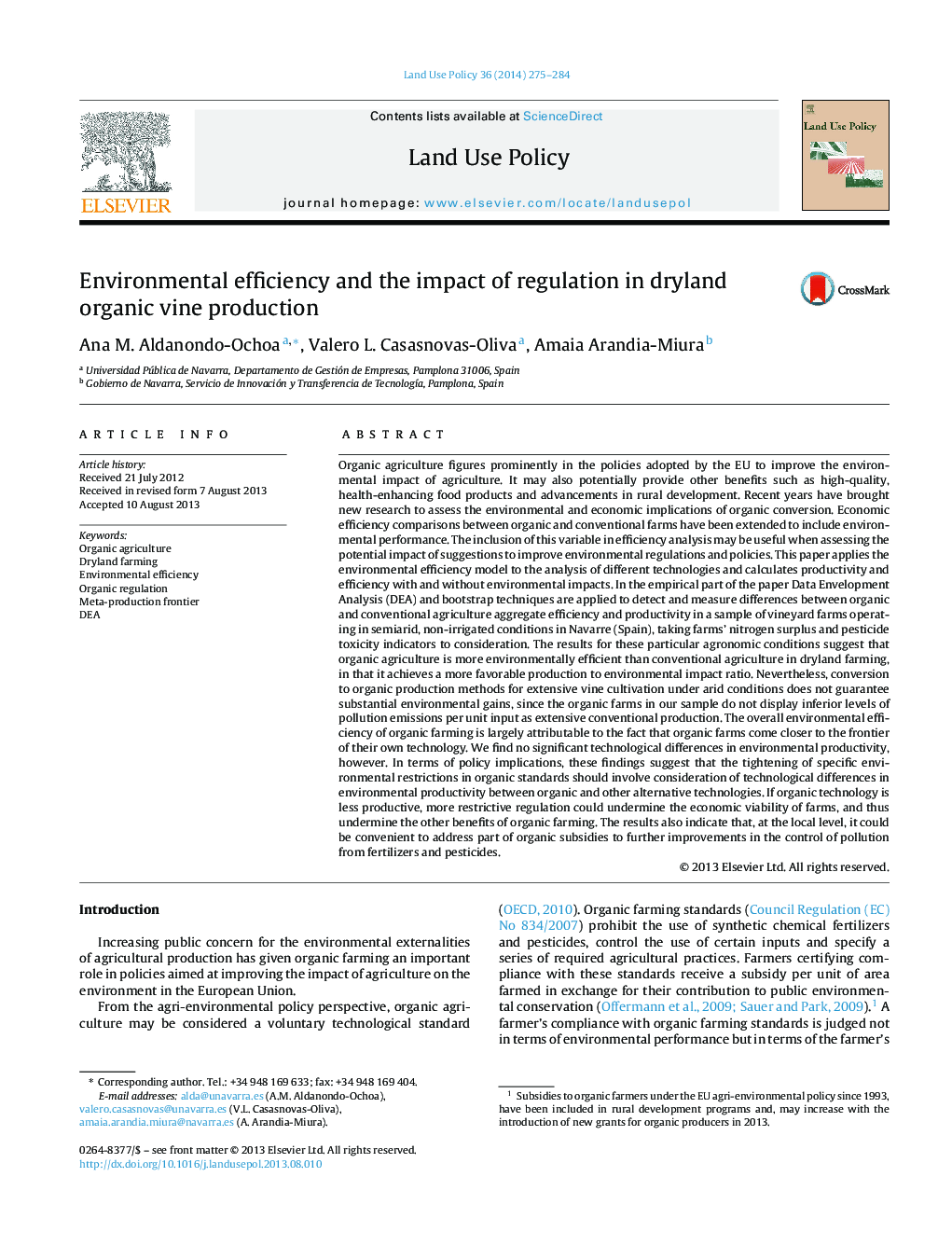| کد مقاله | کد نشریه | سال انتشار | مقاله انگلیسی | نسخه تمام متن |
|---|---|---|---|---|
| 6548964 | 160113 | 2014 | 10 صفحه PDF | دانلود رایگان |
عنوان انگلیسی مقاله ISI
Environmental efficiency and the impact of regulation in dryland organic vine production
ترجمه فارسی عنوان
بهره وری محیطی و تأثیر تنظیم در تولید زیتون آلی دیم
دانلود مقاله + سفارش ترجمه
دانلود مقاله ISI انگلیسی
رایگان برای ایرانیان
کلمات کلیدی
موضوعات مرتبط
علوم زیستی و بیوفناوری
علوم کشاورزی و بیولوژیک
جنگلداری
چکیده انگلیسی
Organic agriculture figures prominently in the policies adopted by the EU to improve the environmental impact of agriculture. It may also potentially provide other benefits such as high-quality, health-enhancing food products and advancements in rural development. Recent years have brought new research to assess the environmental and economic implications of organic conversion. Economic efficiency comparisons between organic and conventional farms have been extended to include environmental performance. The inclusion of this variable in efficiency analysis may be useful when assessing the potential impact of suggestions to improve environmental regulations and policies. This paper applies the environmental efficiency model to the analysis of different technologies and calculates productivity and efficiency with and without environmental impacts. In the empirical part of the paper Data Envelopment Analysis (DEA) and bootstrap techniques are applied to detect and measure differences between organic and conventional agriculture aggregate efficiency and productivity in a sample of vineyard farms operating in semiarid, non-irrigated conditions in Navarre (Spain), taking farms' nitrogen surplus and pesticide toxicity indicators to consideration. The results for these particular agronomic conditions suggest that organic agriculture is more environmentally efficient than conventional agriculture in dryland farming, in that it achieves a more favorable production to environmental impact ratio. Nevertheless, conversion to organic production methods for extensive vine cultivation under arid conditions does not guarantee substantial environmental gains, since the organic farms in our sample do not display inferior levels of pollution emissions per unit input as extensive conventional production. The overall environmental efficiency of organic farming is largely attributable to the fact that organic farms come closer to the frontier of their own technology. We find no significant technological differences in environmental productivity, however. In terms of policy implications, these findings suggest that the tightening of specific environmental restrictions in organic standards should involve consideration of technological differences in environmental productivity between organic and other alternative technologies. If organic technology is less productive, more restrictive regulation could undermine the economic viability of farms, and thus undermine the other benefits of organic farming. The results also indicate that, at the local level, it could be convenient to address part of organic subsidies to further improvements in the control of pollution from fertilizers and pesticides.
ناشر
Database: Elsevier - ScienceDirect (ساینس دایرکت)
Journal: Land Use Policy - Volume 36, January 2014, Pages 275-284
Journal: Land Use Policy - Volume 36, January 2014, Pages 275-284
نویسندگان
Ana M. Aldanondo-Ochoa, Valero L. Casasnovas-Oliva, Amaia Arandia-Miura,
